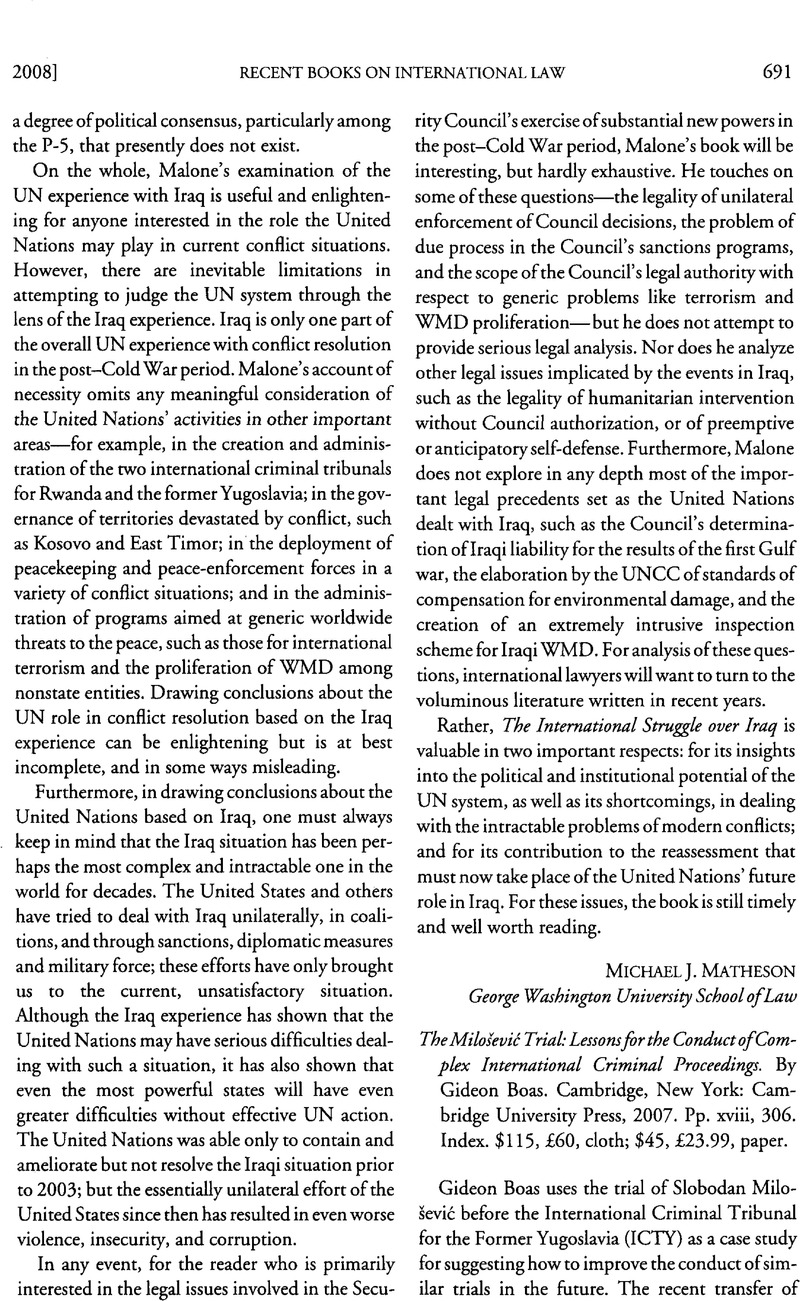No CrossRef data available.
Published online by Cambridge University Press: 27 February 2017

The views expressed herein are those of the author alone and do not necessarily reflect the views of the ICTY or the United Nations.
1 This figure refers only to the time spent by the prosecution for the direct and reexamination of prosecution witnesses and excludes the time devoted to cross-examination, questions from the bench, and procedural and evidentiary matters.
2 The rules are available on the ICTY’s Web site, <http://www.icty.org>.
3 Boas himself acknowledges that the terms of rule 73 bis are “inadequate and are not a good precedent for how such rules should be formulated” (p. 283). But that is not, in itself, the question I am addressing, for Boas does support the goal of rule 73 bis in significantly narrowing the scope of ICTY trials.
4 Under the ICTY’s current structure, indictments are confirmed by a single judge, and the defense may challenge the form of the indictment, but not the sufficiency of the evidence supporting the charges.
5 Again, the experience of the ICTY in this regard is instructive. Since not all of the perpetrators for a given crime are in custody and ready to resume trial at the same time, a significant number of crime bases have had to be repeatedly litigated—as in the case of Srebrenica and Prijedor.